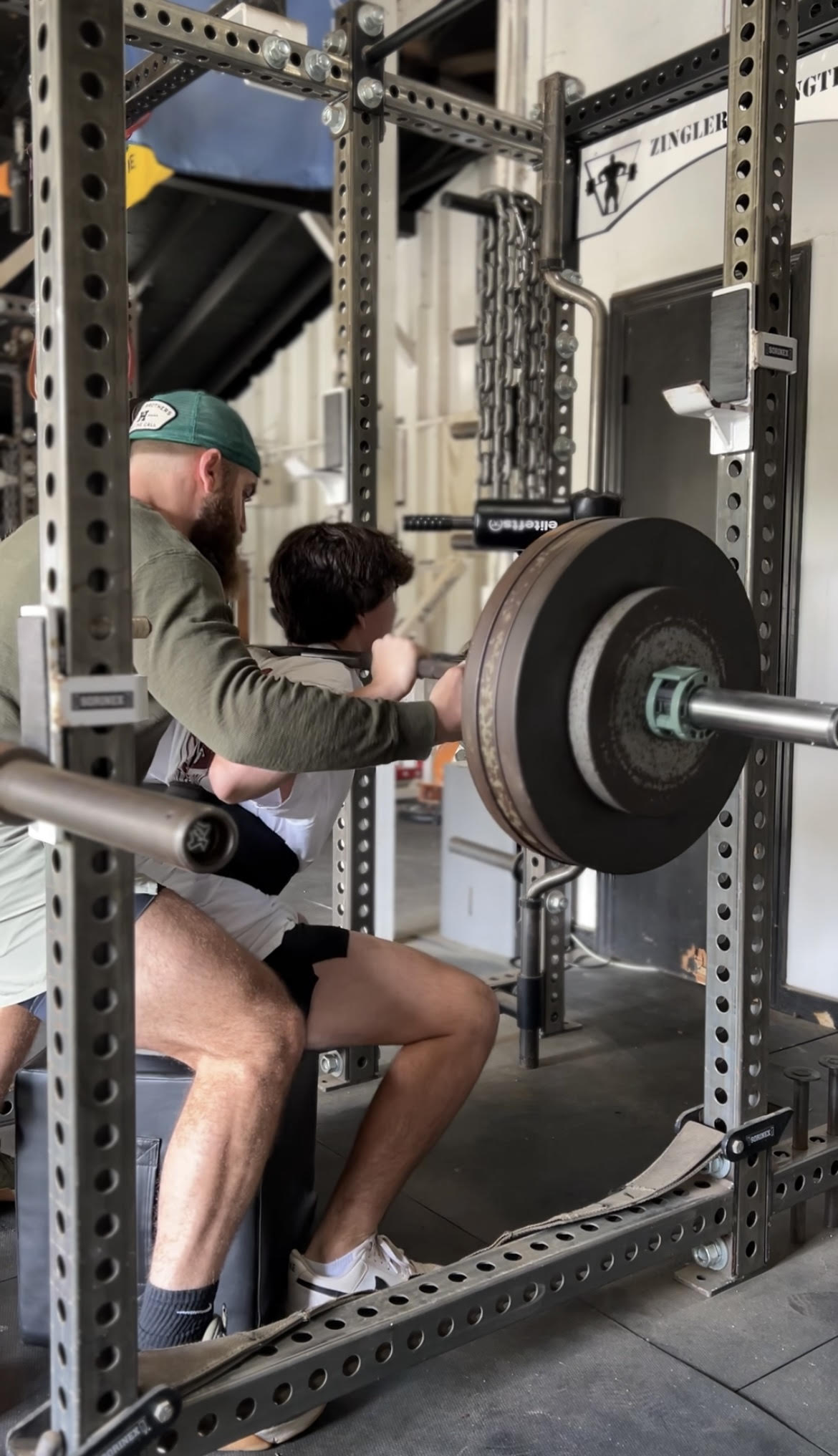This is a big problem, because strength is the most essential concept.
“Strength is a misunderstood concept, which is a problem because it’s an essential one. In fact, the most essential one.
The goal of strength training is to increase relative strength, relative to you.
Not to ‘get muscle bulk, squat 600, leg press, 1,000, and get slow and stiff.’”
-Ray Zingler on Twitter
As much as I understand the benefits of and how essential strength training is to athletic development, I’ve learned that the general public does not understand this. At all.
And it’s not a knock on them either.
As strength coaches, this is OUR world, we live and breathe it every single day.
For athletes and parents of athletes, strength training is “like those machines at LA Fitness or whatever.”
No seriously, that is how it is perceived by most.
And who is to blame them?
Life goes fast.
Parents are busy with their own lives, they have 2 kids at dance, another at baseball, then school, tutoring sessions, and vacations to pack in to their schedules so they can keep up with their neighbors.
If kids or parents want to increase their performance in sport, what makes most logical sense? More of what they are already doing.
Physiologically speaking, as performance coaches, we KNOW this is not the answer, in fact, on the contrary, an over-prescription of specific activity actually decreases performance.
However, because most performance coaches are too busy arguing with each other on social media about how their complex methods are superior to their colleagues 2,532 miles away, instead of spending time educating the general public on a construct they don’t at all understand, strength training is still assumed to be “LA Fitness, machines, muscle bulk, slow for sports.”
Kudos Coaches, keep up the arguing about Type 1 & Type 2 Muscle Fibers, while who you’re trying to serve doesn’t know the difference between carbohydrates and protein.
When I talk about strength training, especially as it relates to youth athletes, the goal isn’t to see to it that they squat <insert ridiculous number> pounds.
I and any strength coach worth their salt could care less about that.
What I want to do is help athletes increase relative strength, relative to their current strength levels.
What this will do is increase their overall speed and power outputs in their sports.
See the concept (strength training) most perceive to make kids “slow and bulky” is actually the one that is responsible for laying the groundwork to improve the qualities most are actually after (speed, power, first step quickness, etc.)
More to come this week.



